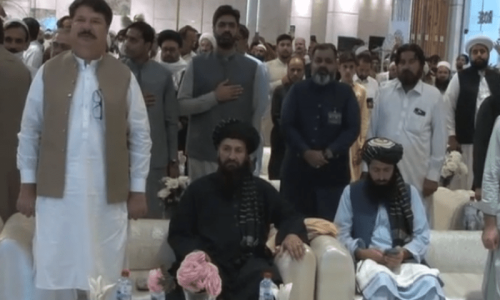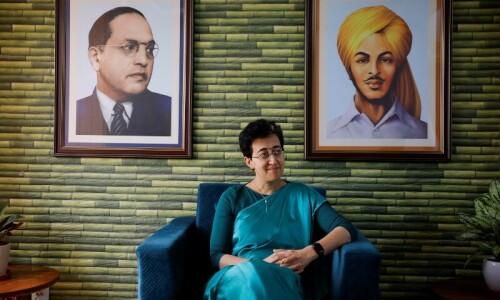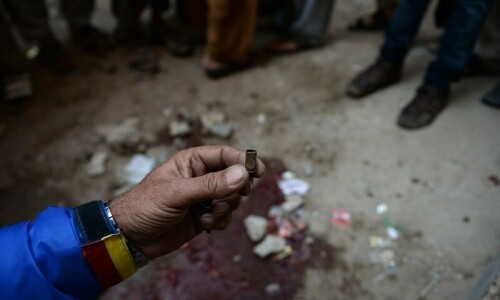NEW DELHI, April 14: Human Rights Watch called on Monday on the Indian government to stop evicting tens of thousands of people who have sought refuge in forests to escape Maoist violence in the country’s east.
The US-based rights group says more than 30,000 people have fled eastern Chhattisgarh state — a hotbed of Maoist conflict in India — to neighbouring Andhra Pradesh state since mid-2005 as tensions mounted.
“Instead of providing them with safe sanctuary, the authorities are tearing down their homes and putting them in harm’s way,” Meenakshi Ganguly, HRW’s senior researcher for South Asia, said in a statement.
HRW said people in Chhattisgarh were caught between the Maoist rebels and a state-backed anti-Maoist movement called “Salwa Judum” (Purification Campaign), which targets suspected Maoist sympathisers.
Opposition parties and rights groups have strongly criticised the Chhattisgarh government for exposing civilians to Maoist violence by supporting the Salwa Judum movement, which was launched in 2005.
Security experts say people who join the movement could be targeted by Maoist rebels, while those who do not risk attacks from state police.
The Chhattisgarh government denies giving state support to the movement, but HRW said it had found that police routinely participated in Salwa Judum raids against villages suspected of being pro-Maoist.
India’s Supreme Court is currently hearing a petition against the state’s support of the campaign.
Meanwhile, the Andhra Pradesh government has made 10 attempts since 2007 to evict displaced people from forests, saying their settlements were illegal, HRW said.
State officials could not be immediately reached for comment since Monday is a public holiday to mark the birth anniversary of Indian leader Bhimrao Ambed-kar, who fought against Hindu-ism’s discriminatory caste system.
The Maoist insurgency, which grew out of a peasant uprising in 1967, has spread to 15 of India’s 29 states, up from four in 1996.
—AFP














































Dear visitor, the comments section is undergoing an overhaul and will return soon.